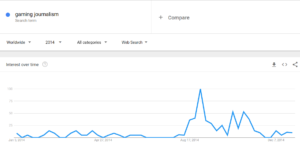Title: Antisocial Behavior in Online Discussion Communities. Cheng et al. are exploring the dynamics of large online communities with members behaving undesirably.
The authors only looked into three news websites to learn about antisocial behavior. While each site has their own target audience to set it apart, there may be little other variation among them. Antisocial behavior is very present in other media forms, so the publication’s conclusions could be more generalized if they covered online communities on Facebook, Reddit, and Youtube. Perhaps this would show that there’s several more variants of antisocial behavior and its evolution in an online community that depends on the constraints and features of a platform. It also could help protect the results if one community was found to be dysfunctional or especially unique. I do not fault the authors for this oversight for two reasons: It is more difficult to structure and follow up a longitudinal study for several more changing social media platforms; and it is quite difficult to cross-compare all of the platforms I listed whereas Cheng’s platforms each have the same overall structure. I do wish that there was more discussion related to this idea then the small mention in the paper’s conclusion.
Cheng et al. also look into the changes that happen over time to an online community and the users that are eventually banned. While this can be used to predict growing antisocial behavior from within a community, it could be impacted by the overall climate of that platform. I imagine that these platforms undergo rapid changes to both moderation and antisocial activity when an event occurs. A sudden rise in concern over ethics and harassment surrounding video game journalism surely would have a profound effect on a social gaming news website’s community. Likewise, approval or disapproval of news network’s articles from a high-profile political leader would likely harness more attention, moderation action, or antisocial behavior. A longitudinal study might be measuring how an event changed a community (either temporarily or permanently), and not how the members of a community typically moderate and react to moderation. A simple investigation I did using Google trends shows a possibly significant spike in ‘gaming journalism’ interest in the latter half of 2014, and could very well have been captured in the 18-month window this longitudinal study took place. In addition, Google’s related topics during that time show terms like ‘ethics‘, ‘corruption‘, and ‘controversy‘ (see image source). These terms have special meaning and connection to the idea of online community moderation, and should not be taken lightly. The omission of even mentioning this event by the authors makes me question if they were so focused on the antisocial behavior that they did not monitor the community for events that could devalue their data.

Source: https://trends.google.com/trends/explore?date=2014-01-01%202014-12-31&q=gaming%20journalism